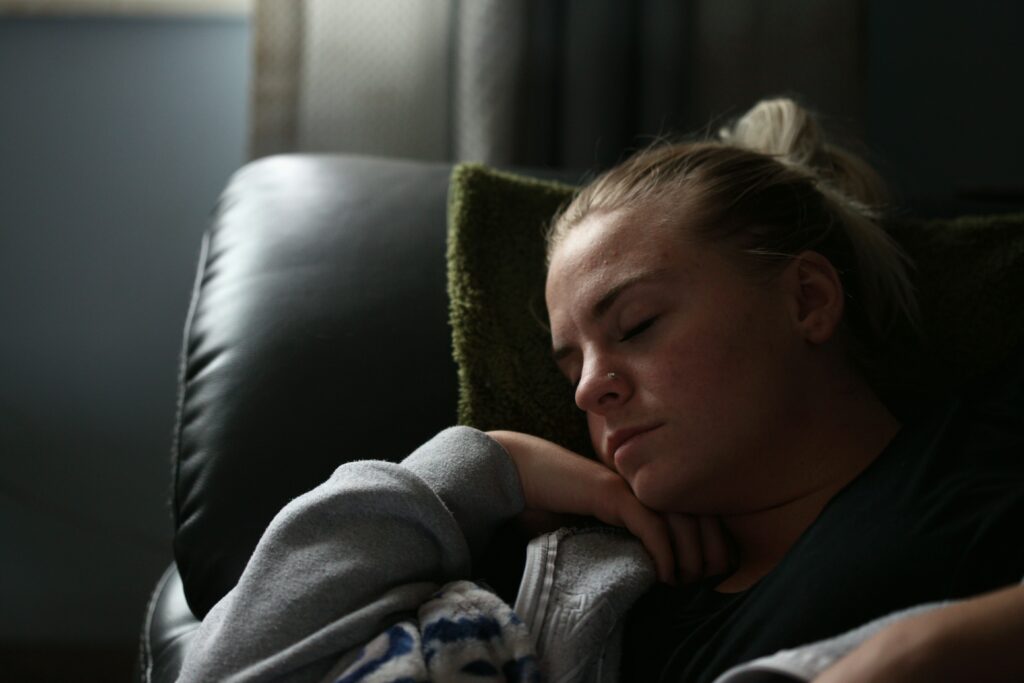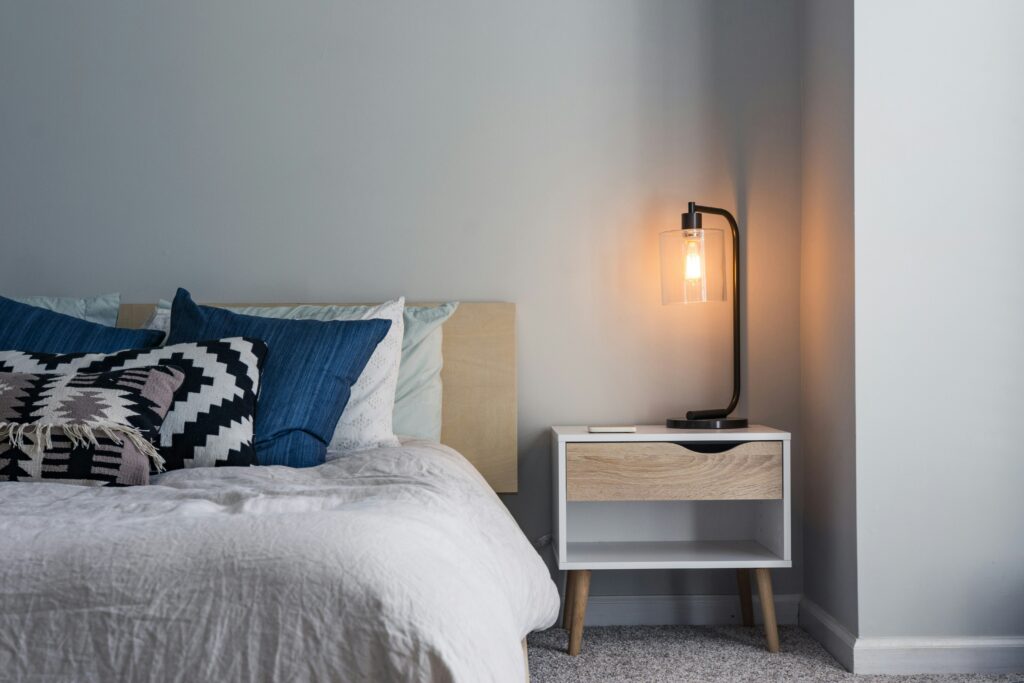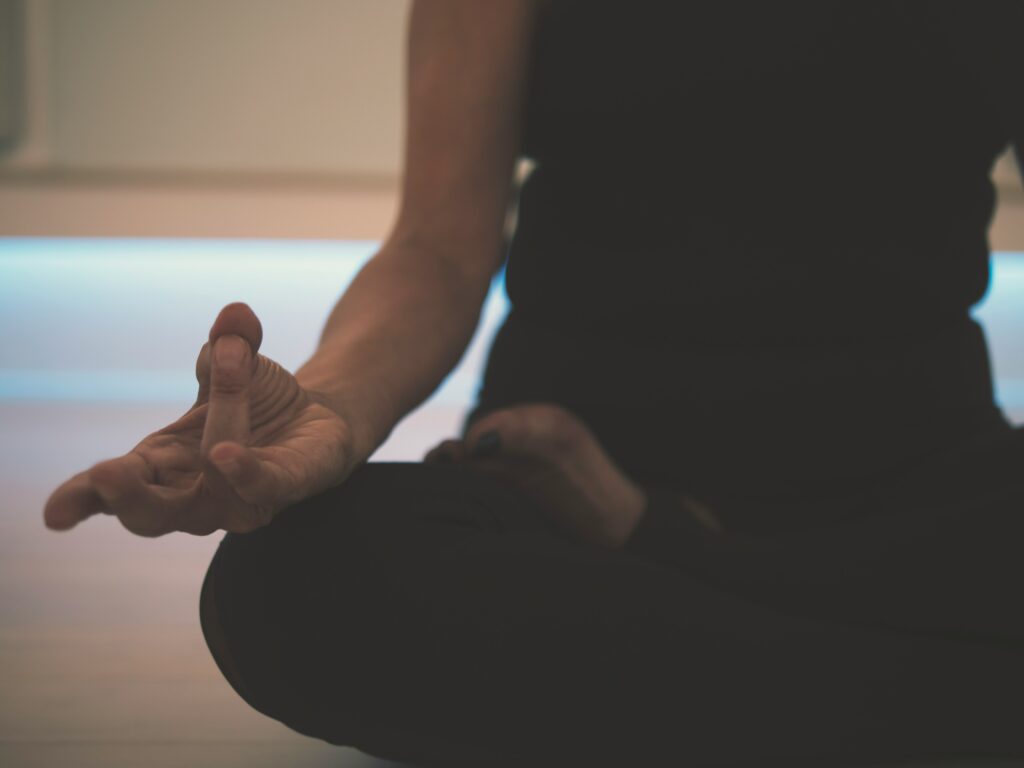In a world that never sleeps, it’s ironic that so many of us struggle to do just that. Did you know that 1 in 3 Australians regularly experience insomnia? That’s right, millions of us are tossing and turning each night, desperately seeking the elusive embrace of a good night’s sleep. But here’s the kicker: achieving better sleep isn’t just about feeling refreshed in the morning. It’s about revolutionising your entire life.

The Science of Sleep: More Than Just Closing Your Eyes
Let’s dive into the fascinating world of sleep science. Now, you might think sleep is just a simple on-off switch, but it’s actually a complex symphony of brain activity. Our sleep cycles are like a carefully choreographed dance, with each stage playing a crucial role in our overall health and well-being.
There are four main stages of sleep: N1, N2, N3 (also known as slow-wave sleep), and REM (Rapid Eye Movement) sleep. Each stage serves a unique purpose:
- N1: This is the lightest stage of sleep, where you’re easily awakened. It’s like dipping your toe into the sleep pool.
- N2: This is where your body temperature drops and your heart rate slows. Think of it as your body’s way of saying, “Okay, we’re really doing this sleep thing now.”
- N3: This is deep sleep, where your body repairs tissues, builds bone and muscle, and strengthens your immune system. It’s like your body’s maintenance crew coming in for the night shift.
- REM: This is where dreams occur, and your brain consolidates memories and processes emotions. It’s like your brain’s nightly debriefing session.
But here’s where it gets really interesting: the amount of time we spend in each stage changes throughout the night. In the first half of the night, we spend more time in deep sleep, while in the second half, REM sleep takes centre stage. This delicate balance is crucial for our physical and mental health.
Now, you might be wondering, “Why should I care about all this sciencey stuff?” Well, understanding these sleep stages can help you appreciate why getting enough quality sleep is so important. It’s not just about quantity; it’s about giving your body and brain the time they need to perform all these vital functions.

The Sleep Saboteurs: What’s Keeping You Up at Night?
Before we dive into solutions, let’s identify the culprits that might be robbing you of your precious sleep. Spoiler alert: some of these might hit close to home.
The Blue Light Bandit
In our tech-saturated world, one of the biggest sleep disruptors is the blue light emitted by our beloved devices. Here’s the problem: blue light tricks our brains into thinking it’s still daytime, suppressing the production of melatonin (our sleep hormone). So when you’re scrolling through social media at 11 PM, you’re essentially telling your brain, “Nah, mate, we’re not ready for sleep yet!”
The Stress Monster
Stress and anxiety are like unwelcome bedfellows, keeping us up with racing thoughts and tension. When we’re stressed, our bodies produce cortisol, the “fight or flight” hormone. This is great if you’re facing a sabre-toothed tiger, not so great when you’re trying to drift off to dreamland.
The Erratic Sleep Schedule
Our bodies love routine. When we go to bed and wake up at different times each day, we’re essentially giving ourselves jet lag without the fun of travel. This inconsistency confuses our internal body clock, making it harder to fall asleep and wake up naturally.

The Environmental Disruptors
Your sleep environment plays a crucial role in your sleep quality. Factors like noise, light, temperature, and even the comfort of your mattress can make or break your sleep. Think of your bedroom as your sleep sanctuary – it should be optimised for rest.
Lifestyle Changes: Your Roadmap to Better Sleep
Now that we’ve identified the enemies of good sleep, let’s talk about solutions. The good news? Many sleep issues can be improved with simple lifestyle changes. Here’s your roadmap to better sleep:

- Create a Sleep Sanctuary
- Keep your bedroom cool, dark, and quiet
- Invest in a comfortable mattress and pillows
- Use blackout curtains or an eye mask to block out light
- Consider using white noise or earplugs to minimise disruptive sounds
- Establish a Bedtime Routine
- Set a consistent sleep schedule, even on weekends
- Create a relaxing pre-bed ritual (e.g., reading, gentle stretching, or meditation)
- Avoid stimulating activities before bed

- Harness the Power of Exercise and Meditation
- Regular physical activity can improve sleep quality
- Aim for at least 30 minutes of moderate exercise most days
- But here’s the catch: avoid vigorous exercise close to bedtime
- Meditate for at least 5 minutes before going to bed
- Mind Your Diet
- Limit caffeine, especially in the afternoon and evening
- Avoid large meals close to bedtime
- Be cautious with alcohol – it might help you fall asleep, but it can disrupt your sleep later in the night
- Manage Screen Time
- Implement a “digital sunset” – turn off screens at least an hour before bed
- Use blue light filtering apps or glasses if you must use devices in the evening
Remember, these changes don’t have to happen overnight (pun intended). Start with one or two that resonate with you and gradually incorporate more as you build your sleep-friendly lifestyle.
Natural Remedies: Gentle Aids for Sweet Dreams
While lifestyle changes form the foundation of good sleep hygiene, sometimes we need a little extra help. Here are some natural remedies that might help you catch those elusive Z’s:
Relaxation Techniques
- Meditation: Even a few minutes of mindfulness meditation can help calm a racing mind.
- Deep Breathing: Try the 4-7-8 technique: inhale for 4 counts, hold for 7, exhale for 8.
- Progressive Muscle Relaxation: Systematically tense and relax each muscle group in your body.

Herbal Helpers
Certain herbs have been used for centuries to promote relaxation and sleep. Consider trying:
- Chamomile tea
- Valerian root
- Passionflower
- Lavender
Always consult with a healthcare professional before starting any new supplement regimen, especially if you’re taking other medications.
Aromatherapy
The power of scent can be a potent sleep aid. Essential oils like lavender, chamomile, and vetiver can help create a calming atmosphere conducive to sleep.
Plant-Based Medicines
It’s worth noting that certain plant-based medicines have shown promise in improving sleep quality. TheY can offer a gentler approach to sleep support, potentially without the side effects associated with some conventional sleep medications. However, it’s crucial to approach any sleep aid, natural or otherwise, with caution and under professional guidance. Contact us at HerbaCure for better and more informed decision-making.
When to Seek Professional Help: Don’t Go It Alone
While many sleep issues can be resolved with lifestyle changes and natural remedies, sometimes professional help is necessary. If you’re consistently struggling with sleep despite your best efforts, it might be time to consult a sleep specialist.

Here are some signs that it’s time to seek professional help:
- You regularly have trouble falling asleep or staying asleep
- You often feel tired or unrefreshed upon waking, even after a full night’s sleep
- Your sleep problems are affecting your daily life (e.g., work performance, relationships)
- You experience loud snoring, gasping, or long pauses in breathing during sleep (potential signs of sleep apnoea)
- You have persistent nightmares or night terrors
Remember, seeking help is not a sign of weakness – it’s a proactive step towards better health. Sleep disorders are medical conditions that can have serious implications if left untreated. A sleep specialist can provide a proper diagnosis and tailored treatment plan, which might include cognitive behavioural therapy for insomnia (CBT-I), sleep restriction therapy, or in some cases, medication.
The Future of Sleep Science: What’s on the Horizon?
As we wrap up our journey through the world of sleep, let’s take a moment to look towards the future. Sleep science is a rapidly evolving field, with exciting developments on the horizon.
Personalised Sleep Solutions
One of the most promising trends is the move towards personalised sleep solutions. Just as we’re seeing personalised medicine revolutionise healthcare, sleep science is recognising that one size doesn’t fit all when it comes to sleep.
Emerging technologies like smart mattresses and advanced sleep tracking devices are providing unprecedented insights into our individual sleep patterns. In the future, we might see sleep recommendations tailored to our unique physiology, lifestyle, and even genetic makeup.
Chronotherapy
Chronotherapy, which involves aligning medical treatments with our body’s natural circadian rhythms, is gaining traction. This could lead to more effective treatments for sleep disorders and other health conditions affected by our sleep-wake cycles.
Neuromodulation
Researchers are exploring non-invasive brain stimulation techniques to improve sleep quality. While still in the experimental stages, these methods could offer new hope for those with treatment-resistant sleep disorders.
Environmental Design
As we better understand the impact of our environment on sleep, we’re likely to see more emphasis on sleep-friendly design in homes, workplaces, and public spaces. This could include everything from lighting systems that mimic natural circadian rhythms to noise-cancelling architecture.
Conclusion: Your Journey to Better Sleep Starts Now
We’ve covered a lot of ground in our exploration of sleep, from the intricate science of sleep cycles to practical tips for improving your sleep hygiene. However, knowledge is only powerful when put into action. So, what’s your next step?
Perhaps it’s creating a consistent sleep schedule or transforming your bedroom into a sleep sanctuary. Maybe it’s exploring relaxation techniques or consulting with a healthcare professional about natural sleep aids. Whatever it is, remember that better sleep isn’t just a luxury – it’s a fundamental pillar of good health.
Imagine waking up feeling refreshed, energised, and ready to tackle the day. Imagine the positive ripple effects on your mood, your productivity, your relationships. This isn’t just a dream – it’s a achievable reality.
So tonight, as you prepare for bed, remember: every small step towards better sleep is a giant leap for your overall wellbeing. Sweet dreams!



